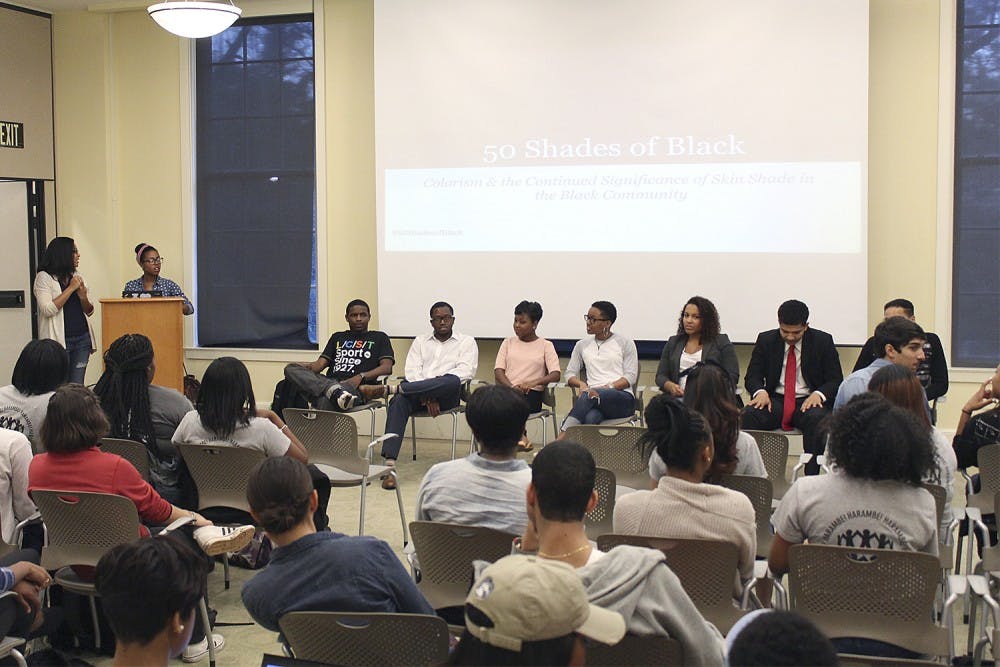“I also resented black people in general, to be honest, because I thought I didn’t have a place. As I was growing up, I didn’t want to be told I am black, I am a black woman,” Coates said. “I am not black! I’m a mix.”
Coates joined six other panelists and about 50 students Wednesday at “Fifty Shades of Black,” an event addressing the prevalence of colorism — a type of discrimination in which people with lighter skin are treated better than people with darker skin, in the black community.
Coates said she tried to detach herself from the black community at first but changed her attitude during college, where she met people of different skin colors and races.
“I felt a lot more comfortable of being just who I was,” Coates said. “Now I am proud of being a black woman.”
Senior Alyssa Townsend said she first thought about her skin color at about 11 years old.
When Townsend was in middle school, she said she thought she could not be sexy because of her dark skin.
“I always thought, ‘I am cute, but I can’t be sexy because you have to be a lighter skin to be sexy,’” she said.
In college, Townsend once referred to herself as being dark-skinned, but said she was corrected the moment she said it.




